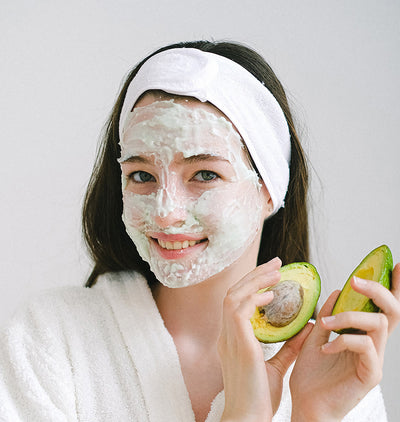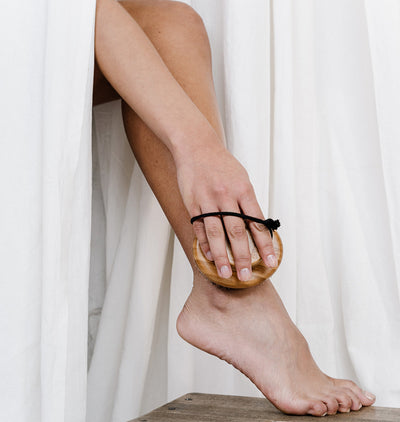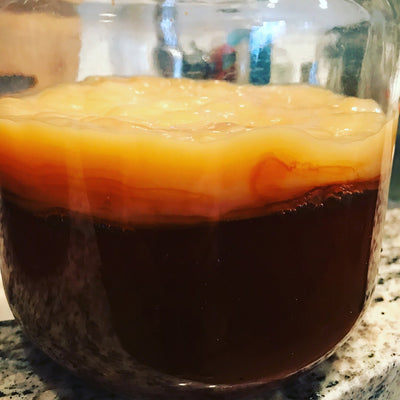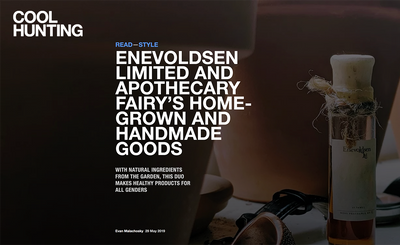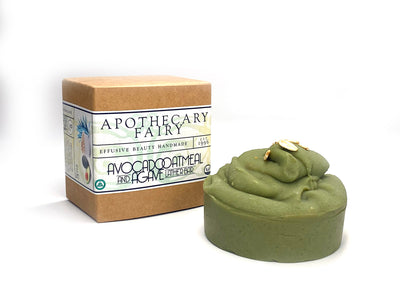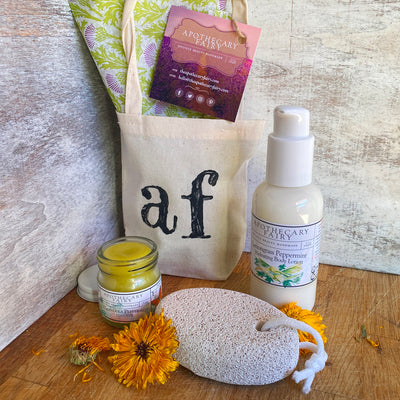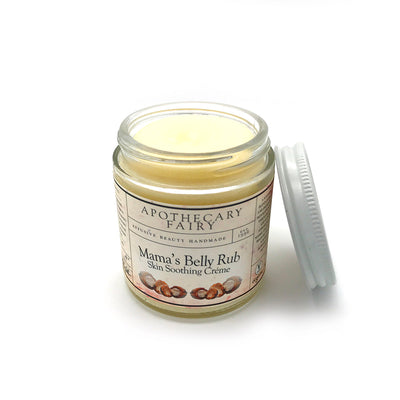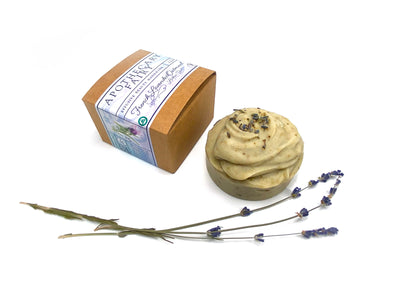
Let's face it...this past year has been a bitch to get through and what do most of us do to cope with stress? We eat the wrong foods and then pay the price with our lack of energy and when we look in the mirror to see a plethora of zit constellations all over our face. And with daily use of wearing a mask during this pandemic, junk food can really do a number on your body and skin.
And if you have kids, you probably stock up on snack items for them and raid their chips stash when your stress really begins to ramp up. C'mon, we've all done it at some point. I can recount a few times where I've stumbled into the kitchen late at night to find a lonely jar of Nutella in the cupboard, just calling my name and a few heaping tablespoons of goodness later, the jar was history.
Stress and hormonal changes/imbalances play a big part in how we choose to eat. And it's also what affects our willpower and smart decision-making to eat the foods we know are good for us. It's been proven time and again that diets serve no purpose but to keep us on that unstable roller coaster of gaining then losing and it can really mess with your head.

LIFESTYLE
To me, eating is a lifestyle. A way of life. As a full time business owner and mother of 3 teenagers, I can tell you first hand that it's so easy to fall back to what's quick and easy- but I made a conscious decision, after many years of fluctuating between being a vegetarian then vegan and switching every few months, to finally commit to a vegan, gluten-free way of life in every way.

WFPB AND WHY IT MATTERS
Nowadays, vegan doesn't mean very much because there are so many "vegan" foods with zero nutritional value and that are spiked with unnecessary sugars so I will rephrase and say, "A Whole Foods, Plant-Based, Gluten-free Vegan way of life." That's such a mouthful and to some it may sound restrictive and boring but this is a beautiful, sustainable way to live and some of the many benefits are clear and radiant skin. Try to invest a little planning ahead time to make certain things yourself avoiding buying less nutritious, more expensive versions at the store. Base it on how much available time you have to invest.

KEEP IT AFFORDABLE- SAVE $$
If you plan your meals around seasonal (organic when possible) produce and buying your pantry staples in bulk, and by prepping your fresh goods ahead of time, you will preserve your food longer therefore having less to compost or throw away so you're already saving money. Also don't buy more than your household can go through in a given week. Certain things can be purchased mid-week if necessary but get used to not overbuying to avoid spoilage.

Ideally, if you have the time and space to invest in growing local and seasonal foods yourself, AWESOME! If you have a bright window, and want to make your own alfalfa and mung bean sprouts, it only takes a 3 minute commitment for 3-4 days to harvest your own sprouts which you tend to use A LOT of for vegan recipes.

PLAN/PREP/ORGANIZE
Committing to a vegan lifestyle means planning the week ahead, for me, it's grocery shopping 1-2 times per week at most, making a grocery list after planning our meals for the week, making sure to stock our freezer with organic fruit for smoothies and desserts and prepping/storing our fresh produce in labeled containers/jars so that it stays fresh for the week.


CHANGE IT UP
I try to keep a lot of variety in how we eat each day as a family but for the most part, I try to make an antioxidant-rich smoothie in the morning, usually with some sort of mixed berries, bananas and kale but changing up the daily fruit/veg choices daily when possible. For lunch, my favorite is a warm salad that's made with some type of lettuce/spinach/kale, with steamed brown rice or quinoa and a variety of whatever chopped vegetables with a balsamic-dash-olive-oil dressing and example for dinner for us would be vegan street tacos with Beyond Beef, black beans and rice and homemade salsa. But by prepping produce for your week ahead of time and keeping your fridge organized, dinners like this are way easier to make in 30 min or less. It took me a good 2-3 months of weekly meal planning to find a sweet spot in all of it and to adapt this way of life to a family. But keeping a few choices handy for a quick prep is a great idea.
AVOID EATING EXCESS OILS- FOR CLEANER SKIN
If you are actively wanting to lose a few pounds, it's recommended to minimize your intake of avocados and nuts though still incorporating some if your tolerance allows. There is really no need to add oil to your food. There's not much nutritional value especially if you're getting your nutrients from your food. Instead, cook with herbs, onions, garlic and spices to add a ton of flavor without the added oil. Honestly, I prefer to use oils to moisturize my skin, not to ingest too much of them.

BE VEGAN FOR AMAZING SKIN
This list of vegan foods below is kindly borrowed from Vegan Food and Living and it's a beautiful and comprehensive breakdown of the foods recommended to keep your body running efficiently but your skin staying clear and clean. Finding balance is so key and it's so much fun to experiment to find what works best for YOU! This list below is worth printing and keeping on your fridge as a great reminder of how to eat for clear skin.
🥬Omega 3-rich foods
Chia and flaxseeds, walnuts, leafy greens, hemp seeds, algae, Brussels sprouts, vegetable oils
"Essential fatty acids are, as the name suggests, an essential component of cell membranes, keeping them elastic and functioning well, as well as being natural moisturisers that help to reduce dryness, leaving the skin feeling and looking smoother and plumper.
They are also able to reduce inflammation levels in the body and have been found useful in conditions such as eczema, psoriasis and acne. Plus, they have been shown to be protective against sun damage. Start eating more of these foods for healthy skin complexion."
🥝Vitamin C-rich foods
Bell peppers, kiwi, strawberries, oranges, papaya, broccoli, tomatoes, peas, kale
"This vitamin is known to be a powerful antioxidant that not only protects the skin from free radical damage and can reduce the appearance of brown spots and pigmentation, but it’s also needed for the production of collagen."
🫐Antioxidant-rich foods
Berries, fruits, vegetables, cacao
"Antioxidant compounds can help decrease the effects of environmental damage caused by sun exposure and pollution. They protect the skin against free radicals, which are unstable molecules that can damage our cells.
These molecules can also speed up the appearance of signs of ageing like fine lines, wrinkles and dark age spots.
While these are a natural part of getting older, their appearance can be accelerated by the presence of free radicals."
🥑Vitamin E-rich foods
"Almonds, sunflower seeds, spinach, avocado, sweet potato, wheat germ, dark leafy greens, hazelnuts
Vitamin E is another essential nutrient for healthy collagen production, as it works with vitamin C to stimulate its formation."
It’s also a main antioxidant present on the skin and protects cell membranes from damage by UV rays and environmental toxins.
🥕Vitamin A and carotenoid-rich foods
Carrot, squash, dark leafy greens, sweet potato, pumpkin, red pepper, apricot, mango, tomato, peach
"Vitamin A is able to slow down the turnover of skin cells and increase the deposition of collagen, slowing the normal breakdown of collagen and elastin associated with ageing. It can also increase the rate of wound healing and repair cellular structure.
Plus, it can improve the appearance of dark spots, pigmentation and acne. Carotenoid-rich foods get converted to retinol (active vitamin A) in the body and also have antioxidant effects on cells and skin."
🥜Protein
Whole grains, legumes, nuts, seeds, algae, green leafy vegetables
"Proteins are necessary for tissue repair and for the construction of new tissue.
Every cell needs protein to maintain its life, including skin cells. Main structural proteins of hair, skin and nails, such as collagen, elastin and keratin, all contain different combinations of amino acids.
Some of these are essential ones, meaning they need to be obtained from diet.
By eating a variety of whole grains, legumes, nuts, seeds and green leafy vegetables, you’ll be able to hit your requirements without any trouble."
🍄Copper-containing foods
Sesame and sunflower seeds, cashews, mushrooms, soya beans, tempeh, chickpeas, lentils, walnuts, leafy greens
Copper peptides help to replenish and nourish the skin, making it look plumper and more hydrated.
It can also help to activate antioxidants that protect against environmental damage. It peptides can be applied topically to the skin to increase collagen production.
🍌Silica foods
Banana, oats, raisins, wheat, leeks, green beans, brown rice
"This trace element is necessary for collagen formation. It can help to regenerate tissues and skin, delay the ageing process and it supports the binding of water molecules to cells.
🥦Zinc-containing foods and other nutrients
Whole grains, beans, legumes, cacao, miso, nutritional yeast, broccoli, green beans
"Zinc is necessary for protein and cell membrane structure, to transport vitamin A in the blood and it can promote wound healing. Plus, it encourages cell renewal and contributes to maintaining collagen structure."
As we age, silica’s concentration in our tissues declines, so it’s important to include sources in our diet."
